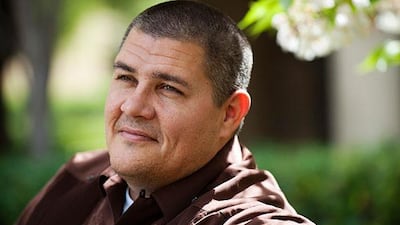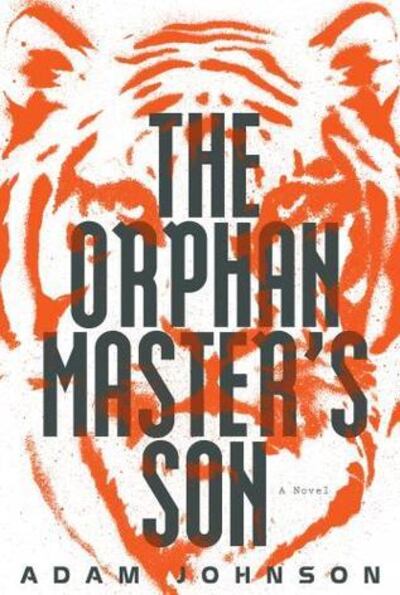In a recent interview, novelist William Boyd offered a piece of advice to young writers. "[They] say, 'I've got this brilliant idea for a novel,' and they start telling me," he explained. "And I always say to them: 'How does it end?' 'Well, I haven't thought that out yet but…' And I say, 'Well, figure out how it ends and then work backwards.'"
It is different for Adam Johnson. The American novelist, who won the Pulitzer Prize for Fiction in 2013 for The Orphan Master's Son and the National Book Award for Fiction for his short story collection, Fortune Smiles, in 2015, prefers to improvise.
"There is a thrill to moving through a scene and not knowing how it's going to play out, listening to every moment, observing true creation," he told me this month at the Dhaka Lit Fest. "If I know too much about a narrative, I just get bored, I quit it."
Which is exactly what Johnson did earlier this year. He had been working on a novel for a number of months and then one day, he simply decided to throw it all away. “I was totally okay with that,” he says. “It was liberating, really.” What was wrong with it? “I had the world, I had the characters, I even had the situation but it was just forced,” he says. “I was trying to make something, rather than discover something and that always feels wooden.”
There is something immensely reassuring about this. If Johnson, one of the most celebrated writers of his generation, is still tossing his words into the wastepaper basket, the rest of us shouldn't feel too bad about doing the same.
Aside from this, though, it is intriguing to hear a writer talk about how they construct a novel. To my mind, understanding the process intensifies the pleasures of reading. It is not like learning how a magic trick works. Instead, it is comparable to glimpsing the plans of a beautiful building – the excitement comes from comprehending why each component is necessary and how they all fit together.
Johnson, a creative writing professor at Stanford University, likens the process to making jazz music. “The artist has his or her instruments and the traditions of what has come before. Then they have a mood,” he says. “They take a melody and they riff and they roll and it turns into something else.” He pauses, before adding: “I think that’s why there is a lot of bad jazz and some truly monumental jazz.”
This free approach to writing, Johnson argues, also means that there are times when an author only has one chance to really get certain paragraphs just right. “I teach my students that sometimes you only have one shot at a scene,” he says. “[One shot] to truly move through it, to make discoveries, encounter these [characters] at important moments and to get the revelation.
“In crucial scenes, the narrative is trying to cordon human beings off where they are exposed, vulnerable and engaged in ways that we aren’t normally,” he continues. “I’m not going to write that when I’m yawning on an aeroplane […] If it doesn’t surprise me, it’s not going to surprise the reader, that’s for sure. Sometimes you finish a scene and you’re like: ‘Oh my God, I never imagined the book was going to go there.’ And then it does, and some magical gift has come.”
It was the American poet Dorothy Parker who famously said: “I hate writing, I love having written.” Speaking to Johnson, though, you get the unmistakable sense that he loves writing, that it brings him fresh joy each time he sits down to do it.
"I write to discover," he says. "It is [about] the intersection of the real world and the fictional world and the inspiration – and the challenge – that comes from realising, 'Oh, it actually works like this, I'm going to have to be true to that and work a little bit harder.'" This insistence on seeking the truth is why Johnson spent six years researching North Korea for The Orphan Master's Son, which examines life in the isolated state.
Acclaim isn't what motivates Johnson – even if he does have two of the biggest literary awards going. "I know people who would murder – murder – for a prize," he says. "It was a wonderful surprise [to receive the awards] but if they called me and said they wanted them back, I'd be like, 'fine'."
Johnson does concede, however, that, never mind the money and the recognition, the prizes are “life-changing”. “They mean a writer is going to be seriously read forever and has permission to take any chance, to do anything,” he says.
And only a fool would rule Johnson out of receiving a whole load more. It turns out that the half-finished novel he chucked out wasn’t totally worthless after all. “I completely changed the narrator and then I went back to the same characters in the same situation and it totally transformed,” he says. “I’m in thrall right now.”
___________________
Read more:
Full programme of speakers for Emirates Airline Festival of Literature 2019
Books on Syrian poet Adonis and Arabic narrative part of Sheikh Zayed Book Award nominations
Power and corruption: what life was really like inside the military wing of the ANC
___________________



